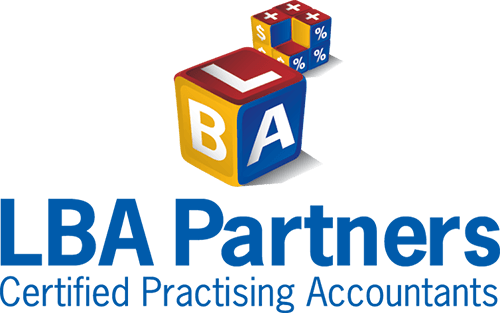P r a c t i c e U p d a t e
December 2011
ATO warns us again about scams
The Tax Commissioner, Michael D'Ascenzo, has reminded the community to be aware and alert to scams claiming to be from the ATO.
"We are seeing an increase in the number, creativity and sophistication of scams being reported," Mr D'Ascenzo said.
"Scammers are ramping up their efforts and we are seeing a range of sophisticated scams, including:
- phone calls that play a legitimate-sounding recorded 'training and monitoring' message at the start of the call;
- phone calls from people posing as 'tax officers' that provide fraudulent ATO call-back details;
- emails about 'the recipient's tax refund, special deals and donations' that are made to appear to have come from the ATO and use 'ATO or government' in the email address; and
- emails containing a dangerous virus, which when opened or downloaded will crash the recipient's computer.
"You can forward suspect email scams to ReportEmailFraud@ato.gov.au or call us during business hours on 1800 060 062 to discuss a suspected scam.
"Anyone can be the victim of a scam. If something seems suspicious, too good to be true, asks you for personal details or cannot be verified by contacting an official source, it is likely to be a scam and you should report it."
GST case on promotional discounts
Editor: Following a Full Federal Court decision that did not go the Tax Office's way, it has issued a 'draft ruling' explaining its new stance in relation to sales of products which contain discounts in some shape or form.
In this case, the taxpayer was a manufacturer and distributor of luxury spectacles, frames and sunglasses. As part of its marketing strategy, it discounted the frames, not the lenses, and was able to successfully argue that the sales price of GST exempt lenses could be separated from the GST taxable frames.
The Full Federal Court said that:
"Promotions that offer lower prices or greater value subject to conditions are common practice in many, if not every, arena of retail sale."
"The offer may be "two for the price of one", or "buy one, get one free", or, as here, a reduction in the price of the frame on condition that the lenses are purchased at the same time."
"How a promotion is structured is a matter for the commercial judgment of the seller. In the present case, it has clearly been decided that the discount offered should be applied to the price of the frames rather than the lenses."
ATO's new stance on mixed supplies
The term ‘mixed supply’ is used to describe a supply that has to be separated or unbundled as it contains separately identifiable taxable and non-taxable parts that need to be individually recognised.
The Tax Office states that apportionment must be undertaken as a matter of practical commonsense. Taxpayers can use any reasonable and supportable basis to apportion the consideration.
Editor: As the Federal Court states, promotions that offer lower prices to increase sales of bundled goods are commonplace in most areas of retail sales.
The ATO has now accepted that as long as there are separately identifiable taxable and non-taxable parts, taxpayers can apportion values on a reasonable basis. The 'ruling' contains a number of examples which are too long to replicate here.
If clients would like to discuss how this 'ruling' may apply to their business, please contact our office.
Are all allowances what they say?
A recent case that came before the Administrative Appeals Tribunal involves a claim that was made against an allowance that was described on a truck driver's payment summary as a LAFHA or living-away-from-home allowance.
The taxpayer's return treated the amount received as a 'reasonable travel allowance' which, if it were, any deductions would not require substantiation.
It turns out it was neither a LAFHA nor a travel allowance but was merely a loading which had been negotiated between the employee and the union.
As such, any claim for travel expenses required full substantiation. The taxpayer had no receipts or other evidence to prove his claim and his appeal was dismissed.
Editor: This case demonstrates how important it is for employers to correctly describe allowances and benefits on payment summaries and for employees to understand exactly what they mean.
Default assessments – non-lodgers
The Tax Office is sending default assessment warning letters to taxpayers with overdue returns where it has evidence that they received taxable income in the relevant financial years.
If the overdue returns are not lodged by the date specified, the Tax Office will issue default assessments for these taxpayers based on the estimated taxable income included in the letter.
Editor: If any client or any of their relatives are in this situation please contact our office immediately.
Employer super guarantee contributions to lift to 12%
The government has introduced legislation to the House of Reps to provide for an increase in the rate of the superannuation guarantee to phase in to 12% over 7 years starting 2013/14 as follows:
| Year starting | Super guarantee rate |
|---|---|
| 1 July 2013 | 9.25 |
| 1 July 2014 | 9.5 |
| 1 July 2015 | 10 |
| 1 July 2016 | 10.5 |
| 1 July 2017 | 11 |
| 1 July 2018 | 11.5 |
| 1 July 2019 | 12 |
New Tax Office GST property tool
The Tax Office has issued a GST property tool on its website to help people dealing with property to understand their taxation obligations and entitlements.
The GST property tool topics include residential premises, commercial premises and vacant land. The tool also carries information on claiming GST credits, margin scheme eligibility, and GST-free supplies of real property.
Editor: While we appreciate the ATO's initiative, we recommend clients consult with our office before taking any action that may affect their taxes.
Education tax refund data matching
The Tax Office has advised that Centrelink will provide it with approximately 2 million names and addresses of taxpayers who claimed Family Tax Benefit Part A for the 2009, 2010 and 2011 financial years.
These will be electronically matched with certain sections of ATO data holdings to identify non-compliance with taxation obligations in relation to the education tax refund.
CPI – September quarter 2011
The CPI indexation factor for the September 2011 quarter is 179.4 (an increase of 1.1 from the June 2011 quarter of 178.3).
Please Note: Many of the comments in this publication are general in nature and anyone intending to apply the information to practical circumstances should seek professional advice to independently verify their interpretation and the information's applicability to their particular circumstances.
Management Consulting
We have the know-how and experience to offer advice that helps you run your business more effectively.
Self-Managed Superannuation Funds
At LBA Partners we provide the professional advice you need to manage your own fund and greatly simplify the process for you.



